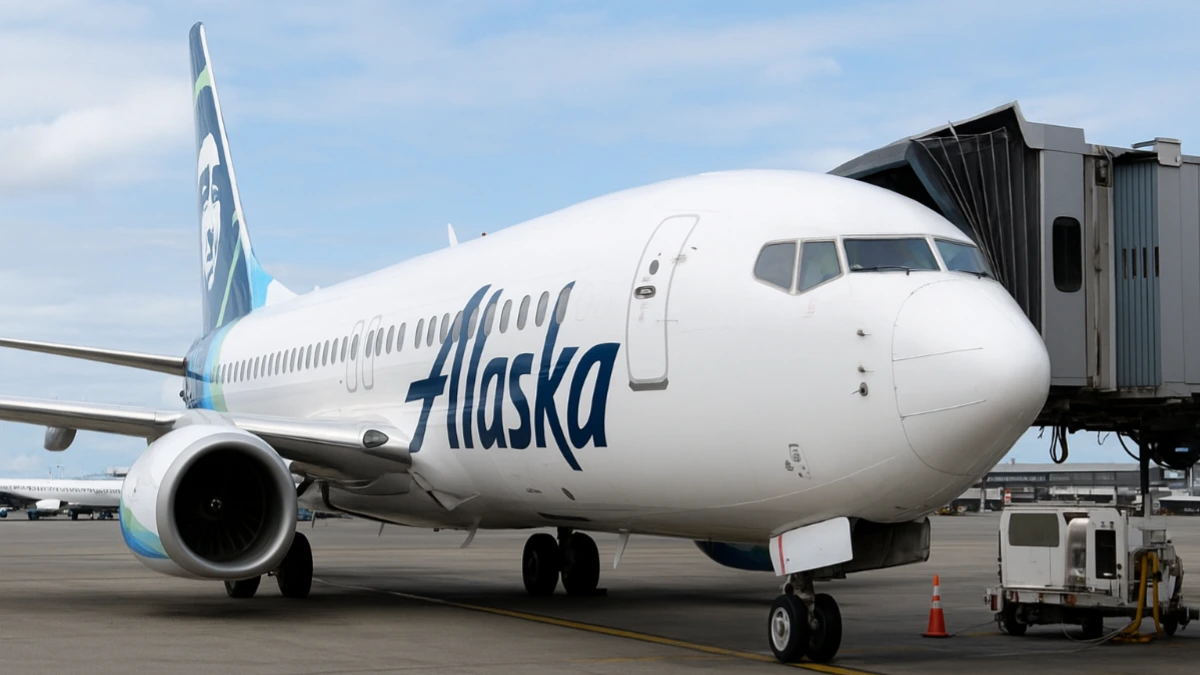Alaska Airlines has committed to a sweeping airline technology upgrade after a major IT failure grounded flights nationwide and disrupted travel for nearly 49,000 passengers.
The Seattle based carrier confirmed Friday that operations have been restored, though more than 400 flights were canceled as engineers worked overnight to bring systems back online.
In a statement, Alaska Air Group called the outage “unacceptable” and said it is bringing in outside experts to conduct a full review of its IT systems.
The company added that the planned airline technology upgrade will focus on long term resilience, reliability, and data security to prevent similar incidents in the future.
The disruption began late Thursday when Alaska Airlines requested a temporary ground stop from the Federal Aviation Administration (FAA) after its primary data center failed.
The breakdown also affected Horizon Air, the company’s regional subsidiary. Flights were halted across the country for several hours before the FAA lifted the ground stop at 11:30 pm Pacific time.
Although operations resumed, hundreds of flights were later canceled or delayed as crews worked through the backlog. The company emphasized that the outage was not caused by a cyberattack but by a system malfunction at its main data hub.
“This failure underscores the work that remains to be done to ensure system stability,” Alaska Air said, noting that it had experienced a smaller outage in July and had already begun limited airline technology upgrades prior to this latest incident.
Aviation analysts say the situation exposes a growing vulnerability in an industry increasingly reliant on complex software systems.
“Airlines today are data companies that happen to fly planes,” said Dr. Laura Chen, an aviation technology researcher at Embry Riddle Aeronautical University.
A failure in the IT backbone can paralyze the entire operation within minutes. The need for a robust airline technology upgrade has never been clearer.
Industry consultant Michael Torres noted that other US carriers including Southwest and Delta have faced similar crises due to outdated IT frameworks.
“When your core systems are decades old, even a minor malfunction can cause a nationwide ripple effect,” Torres said. “Investing in redundancy, automation, and cloud migration should be a priority for every airline.”
Shares of Alaska Air Group fell six percent on Friday, reflecting investor concern over operational reliability and potential financial impacts on fourth quarter earnings.
According to preliminary company data, the outage led to over 400 canceled flights and impacted nearly 49,000 passengers. Alaska Airlines has yet to release a financial estimate, but analysts believe the incident could cost several million dollars in lost revenue and compensation expenses.
In a similar event in July, Alaska’s three hour outage cut about ten cents per share from its quarterly profits. The latest disruption, analysts say, will likely have a deeper impact because of its scale and timing near the holiday travel season.
Other airlines have suffered even costlier meltdowns. In December 2022, Southwest Airlines’ system crash led to more than 16,000 flight cancellations and an $825 million loss. Experts say that such cases highlight the urgent need for large scale airline technology upgrades across the sector.
At Seattle Tacoma International Airport, passengers described confusion and exhaustion as delays stretched through the night.
“I was supposed to fly to Los Angeles for a business meeting, but the flight got canceled with no warning,” said Emily Carter, a marketing executive from Seattle.
“The app stopped working, and the announcements were inconsistent. It felt like no one had control.” Another passenger, Ahmed Malik from Portland, echoed the frustration.
“I don’t mind delays for weather, but when it’s a tech issue and it’s the second one this year that’s worrying. They really need a full airline technology upgrade if they want people to trust them again.”
Airport staff worked to rebook affected passengers, prioritizing essential travel, while the airline offered hotel accommodations for overnight delays.
Alaska Air Group said it is “immediately bringing in outside technical experts to diagnose our entire IT infrastructure and ensure we are as resilient as we need to be.”
The company’s upcoming airline technology upgrade will focus on expanding backup systems, increasing automation, and improving data center redundancy.
Aviation technology firms suggest that airlines must transition from on site data centers to cloud based platforms to enhance resilience and minimize downtime.
“The future of air travel depends on digital reliability,” said James Peterson, chief systems engineer at AeroTech Consulting. “Carriers like Alaska can turn this crisis into a turning point if they fully modernize their IT architecture.”
Alaska also postponed its quarterly earnings call, originally scheduled for October 24, while it assesses the full financial effect of the disruption.
Alaska Airlines’ latest outage its second major one in a year underscores the critical importance of modern digital infrastructure in aviation.
By committing to a comprehensive airline technology upgrade, the carrier hopes to rebuild passenger confidence, stabilize operations, and avoid future nationwide disruptions.
As the airline industry continues to digitize, experts say this incident serves as a reminder that even the most established carriers are only as strong as their technology systems.
